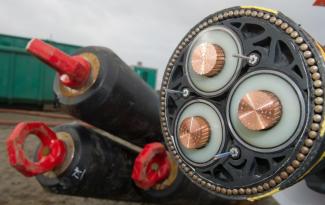Global affairs
The EU needs new confidence

The UN adopted the SDGs in the context of the 2030 Agenda for Sustainable Development in September 2015. This planetary plan of action is meant to mark all continents and is in line with European values and interests. The EU should set a strong example in implementation, but it so far is only acting half-heartedly. This applies to agreements made at the Paris climate summit in December too, for example.
For many months, EU summits have been tackling seemingly unrelated topics – including refugees and migrants, Britain’s possible exit or the euro crisis. In the meantime, economic disparities are growing in Europe, and so are social tensions. Populists are benefiting from increasing Euroscepticism. Are the SDGs not a priority for the EU?
There actually is some action behind the scenes. By mid-year, a special adviser on sustainable development is scheduled to make proposals to the European Commission on how the EU can best implement the SDGs at home and contribute to achieving them internationally. In Brussels, however, there is hardly any talk of the EU Sustainable Development Strategy any more. It was last up-dated in 2009. It is irritating, moreover, that the EU is working on an update of its growth strategy (“Europe 2020”), apparently without any discernible concern for the SDGs. The same is true of its new “EU Global Strategy”.
The EU’s heads of state and government and the presidents of Commission, Council and Parliament should pass a joint declaration to ensure that the SDGs serve as guidelines for all EU policy-making. Sustainable development – whether at the global or European level – can no longer be considered just one of many topics. It concerns all areas of domestic and foreign policy-making, not merely environmental policy or cooperation with so-called developing countries. The EU and its members are among the parents of the narrative of sustainable development. To leave no one behind, to live and do business today in a way that permits future generations to enjoy the same quality of life – this agenda is a global one.
At the same time, the SDGs address core issues of Europe’s domestic worries – from youth unemployment and social disparities to growth and infrastructure to sustainable agriculture and bio-diversity. The EU needs new success, new confidence and new legitimacy. The SDG agenda has the potential to set in motion a new and innovative dynamic of prosperity in Europe and all over the world.
Is it not obvious, for example, that the industrialised nations must press ahead with the transition from fossil energy fast if the global climate is to be stabilised? Huge investments are needed, and they will boost technological competitiveness. Instead, Europe’s economies are currently suffering a lack of private and public sector investments. One result is extremely low long-term interest rates. The lack of innovation and investor dynamism matters more in this setting than monetary policy does. In spite of the Juncker Plan, the € 315 billion programme for public and private sector investments in Europe, EU policies have not made investors substantially more confident since the start of the euro crisis, and they have not achieved much in terms of taking a new, sustainable approach to ensuring prosperity.
Our non-sustainable lifestyle is causing irreversible damage in important respects. Not to work on the needed transformation full throttle is irrational and reckless. If the EU wants to stay credible in the eyes of its citizens and the international community, it must set convincing examples in rising to the global challenge of sustainable development.
At the global level, the UN’s new High-Level Political Forum will begin assessing the implementation of the 2030 Agenda in July. The EU members Germany, France, Estonia and Finland have submitted their policies for discussion. The EU itself should be on board next year and present a convincing strategy.
Adolf Kloke-Lesch is the executive director of the Sustainable Development Solutions Network (SDSN) Germany. This comment is based on a German essay he contributed to Forum Wirtschaftsethik (Berlin, 2016).
adolf.kloke-lesch@die-gdi.de
http://www.die-gdi.de/forschung/sdsn-deutschland/







